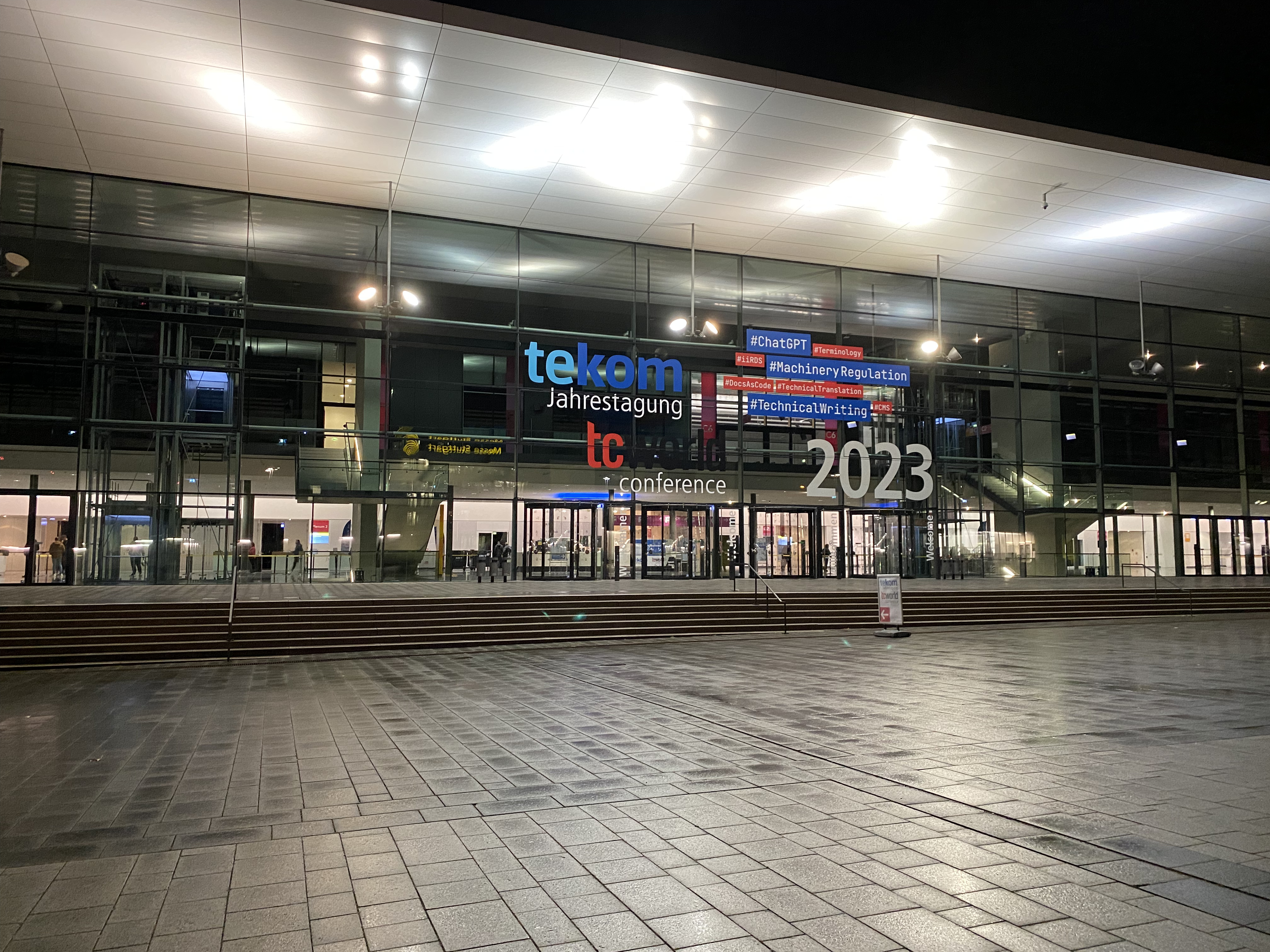Impressions from My First tcworld Conference
19 February 2024
In November 2023, I had the chance to attend my first tcworld conference where I also delivered a workshop about creating tech writing portfolios. It was a a great experience for me so I thought it’s a good idea to share about it.
The Conference

tcworld is the biggest technical communication conference in the world and attracts thousands of participants every year. This year, there were around 4000 people attending the experts’ and partners’ presentations, the vendors’ exhibition, and the career show during the three days of the conference.
The focus was on artificial intelligence and legal regulations and standardization among other topics. There were sessions in both English and German. German sessions were mostly around the topics of translation and legal compliance, but I couldn’t join any of these anyway due to my vague understanding of the language. Thanksfully, there were plenty of sessions in English that I could choose from. I happily dove into the topics of artificial intelligence, career analysis and development, peer reviews, docs-as-code toolchain implementations, SEO, and analytics.
Takeaways
- AI and LLMs are here to stay and this will for sure affect writers and translators, but nobody is taking our jobs just yet.
- Human factor will still be needed but our role in the content creation process will be different. Among other tasks that we already do nowadays, we’ll have to become experts in prompting so that we can get the best output from the AI and we’ll have to spend more time editing and polishing the content we get from the AI.
My Workshop

Having a portfolio is not a widely-adopted practice among technical writers. Yet, we also need a way to showcase our expertise through work samples and/or projects we’ve worked on, just like designers and developers do.
During the process of creating my own portfolio, I noticed that the discussions around the topic of tech writing portfolios are mainly focused around the questions “What to include in my portfolio?” and “How do I create samples for my portfolio if all my work is covered by NDAs?”.
At the same time, there was absolutely no information about how exactly to create the portfolio. No specific instructions and no guidance about any technical obstacles you might face in the process. This is how I got the idea about creating a workshop that focuses on the How? and offers a possible solution for creating a portfolio. For this purpose, I’m using Jekyll (a static site generator) to build a portfolio website and GitHub Pages to host the website.
The workshop consists of a preliminary setup, some basic theory, and an exercise. Participants first learn about portfolio challenges in general and alternative ways to create a portfolio, then we look in more detail into Jekyll and Jekyll themes, and then we follow a step-by-step, structured approach to:
- select a Jekyll theme based on criteria defined up-front
- fork the theme repo and customize the theme to better suit the needs of a tech writing portfolio website
- publish the website so that it’s live on the Internet and ready to be populated with work samples
Conclusion
Presenting at a conference can feel scary when you initially think about it. However, once you get through it, I promise that it’s much more rewarding than the initial amount of stress. The feeling of a job well done, the fulfillment of managing to actually help someone else achieve their goal, the feedback from participants, and the subsequent confidence that it brings are immensely inspiring. To the point that I felt like I’d like to go talk at more conferences and really kick-start the discussion about portfolios among technical communicators in our part of the world.